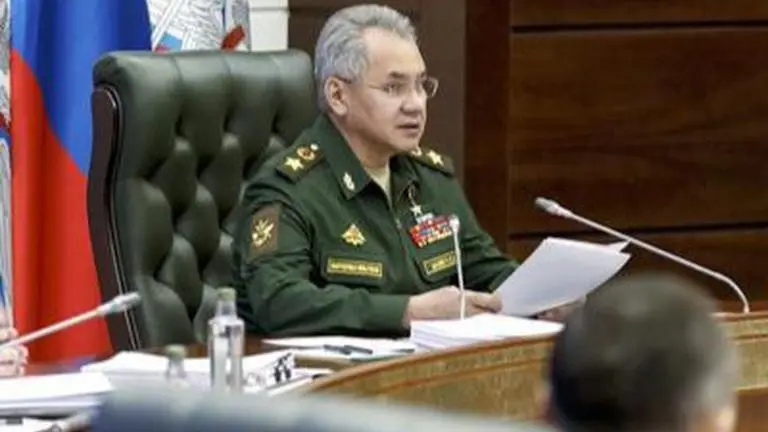Updated 10 January 2023 at 22:04 IST
Russia's Sergei Shoigu says Moscow will continue to develop its nuclear triad in 2023
Sergei Shoigu, Russia's defense chief, announced on Tuesday that the nation will continue to develop and maintain its nuclear triad in 2023.
- World News
- 3 min read

Sergei Shoigu, Russia's Defence Minister, announced on Tuesday that the nation will continue to develop and maintain its nuclear triad in 2023, as per a report from TASS. During a conference call with the Defence Ministry, Shoigu emphasized the importance of the nuclear triad in ensuring the country's sovereignty and territorial integrity. The Defence Minister also reported that the share of advanced equipment provided to the country's strategic nuclear forces has reached 91.3%. He stated that the nuclear triad is currently maintained at a level that guarantees strategic deterrence.
Russia's nuclear strategy has its roots in the Soviet Union's nuclear program, which began in the late 1940s. The Soviet Union's first nuclear weapon test was conducted in 1949, and by the mid-1950s, the country had developed a significant nuclear arsenal. During the Cold War, the Soviet Union's nuclear strategy was primarily focused on deterring a nuclear attack from the United States and its allies. The country developed a "massive retaliation" doctrine, which stated that any nuclear attack on the Soviet Union would be met with an overwhelming nuclear response. This doctrine was intended to deter a nuclear attack by making the potential cost of such an attack too high for the attacker.
Development of Russia's nuclear strategy
As the Cold War progressed, the Soviet Union also developed a doctrine of "flexible response," which allowed for a range of response options to a potential nuclear attack, including conventional military options and limited nuclear strikes. This doctrine was intended to give the Soviet Union more options for responding to a nuclear attack and to prevent an attacker from being able to predict the Soviet Union's response. The collapse of the Soviet Union in 1991 brought significant changes to Russia's nuclear strategy. The country inherited the Soviet Union's nuclear arsenal, but with a reduced military budget, it could not maintain the same level of nuclear readiness as the Soviet Union. This led to a focus on maintaining a smaller, but still effective, nuclear deterrent.
Since the 1990s, Russia has continued to develop and modernize its nuclear arsenal, including the development of new delivery systems such as missile submarines and intercontinental ballistic missiles. Russia's nuclear strategy has continued to emphasize the importance of maintaining a credible deterrent to potential adversaries. More recently, Russia has announced to modernize and renew its whole arsenal, focusing on new weapon systems such as Hypersonic and Status-6 an underwater drone with nuclear capability, for which Russian authorities affirm that it will maintain strategic deterrence against other nations.
Advertisement
Published By : Sagar Kar
Published On: 10 January 2023 at 22:04 IST
